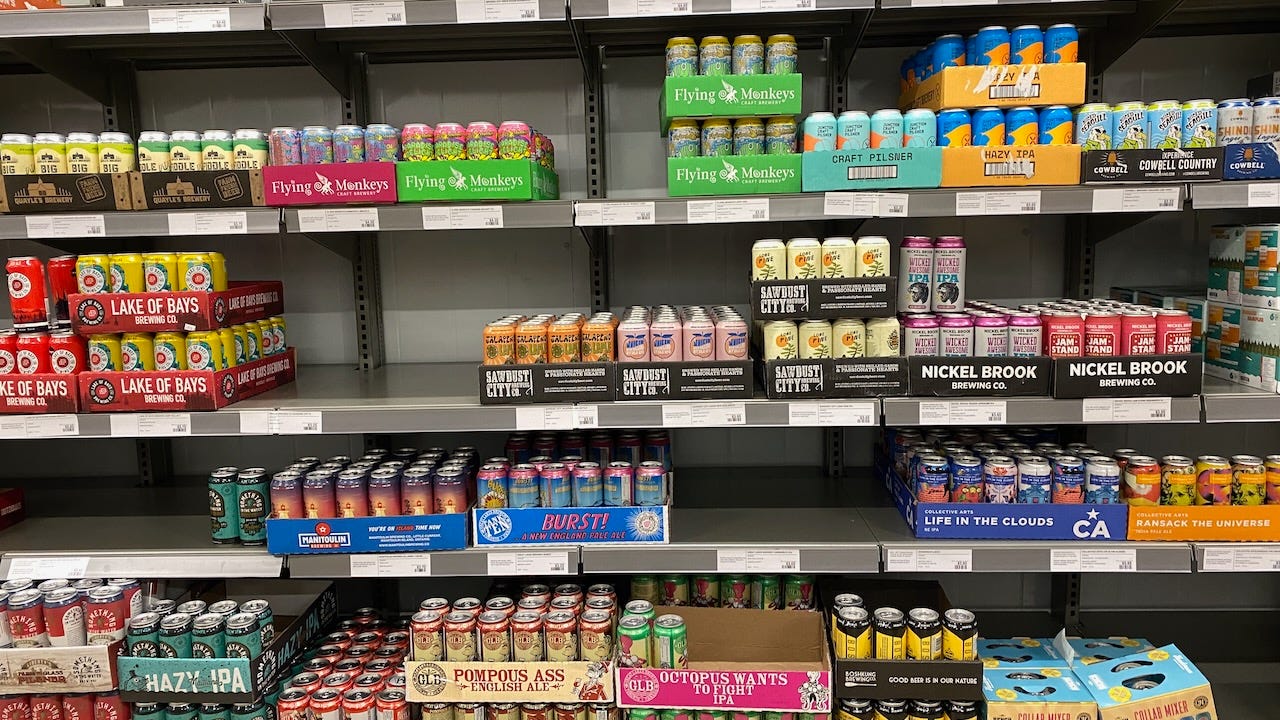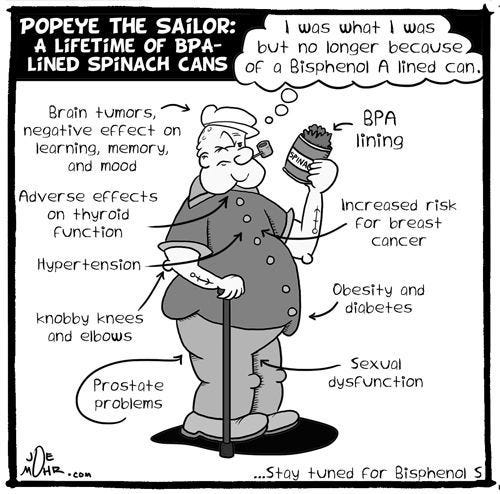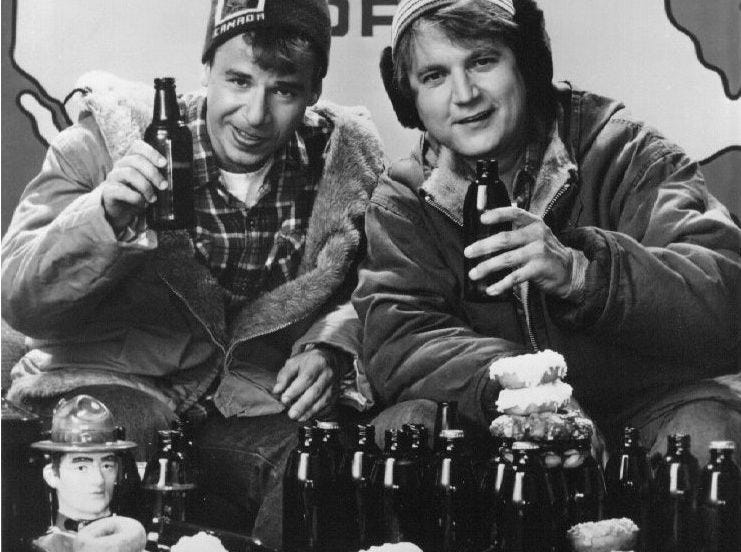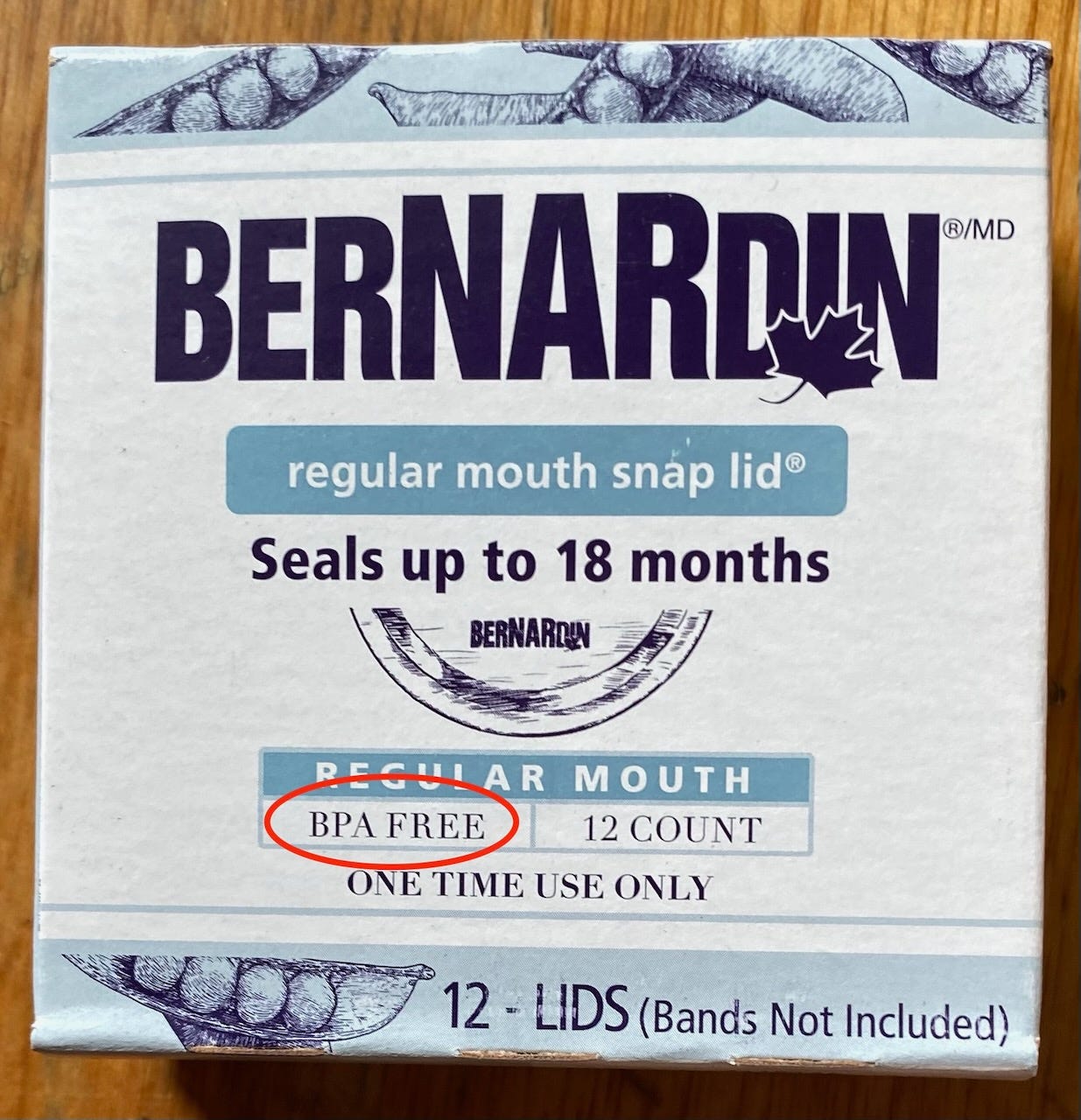New study finds Bisphenol A increases risk of autism
But just go have another beer or Coke, who cares?
Remember Bisphenol A (BPA)? It’s back in the news.
A new study published in Nature Communications finds “Boys born to mothers with high urinary BPA levels were 3.5 times more likely to have autism symptoms by age 2 and 6 times more likely to be diagnosed by age 11.”
Professor Anne-Louise Ponsonby explains,
“Exposure to plastic chemicals during pregnancy has already been shown in some studies to be associated with subsequent autism in offspring. Our work is important because it demonstrates one of the biological mechanisms potentially involved. BPA can disrupt hormone controlled male fetal brain development in several ways, including silencing a key enzyme, aromatase, that controls neurohormones and is especially important in fetal male brain development. This appears to be part of the autism puzzle.”
Now you may be wondering why I have illustrated this post about BPA with a wall of canned beer. I have been writing about BPA since the Nalgene polycarbonate bottle scandal in 2007, when people learned that the bottles could leach BPA.
When they were taken off the shelves at MEC and REI.
When people would rather go thirsty than take a sip from one of them.
When the Canadian government declared BPA to be toxic to human health.
When George W. Bush banned BPA in baby bottles and sippy cups.
But BPA was also a major component of the epoxy lining in vegetable, pop and beer cans. There was even a scandal when people switched from polycarbonate bottles to SIGG stainless steel bottles, which were lined with epoxy, pretty much the same stuff that was in cans. SIGG was run off the market. It is still found in many food and beverage containers, thermal paper reciepts, and some cosmetic and personal care products.
I concluded back in 2008:
“People are entitled to know what is in their stuff, what they are putting in their mouths. That is the new bottom line.”
Alas, nobody listens to me and nothing has changed. As beer in cans became more popular thanks to the craft beer revolution, I would yell at my kids that they should drink out of bottles. I wrote so many posts about this, complaining,
I know people who would go thirsty rather than drink from a polycarbonate bottle because of the danger of Bisphenol A or BPA, which has been variously blamed for contributing to heart disease, obesity, reduced penis size, even making girls mean and making you stupid and depressed. It is a synthetic hormone that's now banned in baby bottles and run off the market in the water bottle world. Yet that polymer lining in every beer can is made with BPA.
This didn’t used to be a problem where I live in Ontario, Canada, which had a wonderful returnable bottle system so I could avoid canned beer and keep yelling at my kids. 88% of bottles would be returned and refilled up to 30 times, using 93% less energy than making a new container. And the washing water? it takes between "47 percent and 82 percent less water than is needed to manufacture new one-way bottles for the delivery of the same amount of beverage."
Then Doug Ford got elected as Premier of Ontario, and promised beer in corner stores. According to Steven Tufts of York University, “It’s a process that has been ongoing over the past few decades and part of a strategy to erode good jobs in the alcohol retail sector. It can be viewed as union-busting by stealth and the public has played its part along the way.”
But corner stores don’t want to deal with bottle returns, and cans are easier to manage in the shop. To destroy the Beer Store, you have to destroy the returnable bottle system. The pandemic gave him a big help because the bottles weren’t being returned, so cans became more common. Today I am drinking my Muskoka Detour out of a can because there are almost no bottles available at all, only a few from the big mainstream brewers.
I should note that there has been change. I am informed that my beer from Muskoka Brewery is packaged in cans lined with BPANI. The manufacturer says, “BPANI liners, especially Gen 2, offer a BPA-free alternative, closely matching the reliability of Epoxy liners without the BPA-related health concerns.” But not everyone is using them;
“While BPANI Gen 2 liners are indeed a more recent innovation that addresses health concerns associated with BPA, they are still gaining ground in the market. Epoxy liners, with their long-standing history and proven track record, continue to be the default choice for many manufacturers due to their familiarity and established production processes. Also, transitioning to new materials like BPANI Gen 2 can involve changes in manufacturing processes, which might require additional investment and time.”
I have no idea of how many breweries are using these cans, and wish they would all just tell us.
I may go on about beer because there were at least options, but the problem with soft drinks is even worse. As I have written about many times, there was a lot more money to be made by centralizing production with single-use packaging, closing all the local bottlers, and shifting the cost of picking up and dealing with bottles from the company to the consumer and the taxpayer.
It is likely that pregnant women drink a lot more pop than they do beer, and in 2009, Health Canada found 4.5 parts of BPA per billion in pop cans. “The levels are “extremely low,” said Samuel Godefroy, director of the health agency’s Bureau of Chemical Safety. He said children would not be at risk from consuming pop, and an adult would have to drink 900 cans a day to exceed the government’s safety level.”
Back in 2015, Coke said this proved that BPA was harmless, and had a page on their website (now deleted) defending BPA. However they have spent years looking for alternatives. In 2021 we finally learned what they were doing when a chemist was charged with stealing trade secrets,“related to bisphenol A (BPA)–free beverage can liners. Prosecutors say Shannon You took intellectual property (IP) valued at $120 million from Coca-Cola and 7 chemical companies, intending to sell it to a Chinese polymer firm that was supported by government programs”
“During You’s employment at Coca-Cola, the beverage maker was testing BPA-free can liners from several chemical and coatings companies. Some were epoxies made without BPA, like Sherwin-Williams’s valPure V70, which uses tetramethyl bisphenol F. Others were based on polyolefins and other types of plastic.”
The situation with canned vegetables is different; apparently, 95% of canned vegetables are now BPA free. They don’t often say what the alternative used is; according to Gosia Wozniacka of Civil Eats, writing in 2021,
“Alternative linings, which have been developed by food container manufacturers over the past decade, exist in multiple formulations, but there is no way to determine the specific chemicals used in each mixture, their concentrations, how they interact with each other, or how they are produced, said Janet Nudelman, director of program and policy at Breast Cancer Prevention Partners, a California-based nonprofit. The companies produce the compounds in-house, with no transparency, and there is little or no research about the safety of the final products (including whether any of the chemicals leach from the linings into food, their impacts on the human body, and whether they break down in the environment).”
So once again, we as consumers have to ask what is in the product and demand change. Given the lack of information, (and I have been searching) I can only assume that pop cans are still lined with epoxy made with BPA. Otherwise, why wouldn’t they stick a BPA-free label on it like every company that can, does? If you don’t got it, flaunt it!
And now we have the new study linking BPA in pregnant women to autism in their offspring. I can only repeat the advice I relayed from the Environmental Working Group a dozen years ago:
Don't eat canned food if you are pregnant. the Center for Science in the Public Interest (CSPI) says "We don't want to tell people not to eat canned beans or tomatoes," said CSPI nutritionist David Schardt. "But at the same time, it makes sense for all parents, and especially pregnant and nursing women, to minimize the exposure of their kids' developing bodies and brains to BPA." [UPDATE- we don’t know if the alternatives are any better. It is safer just to avoid cans.]
Buy in bottles, not cans. Many products, like tomato sauces, are available in bottles as well as cans. Does that white epoxy on the inside of the metal lid have BPA? Probably, but there is a lot less surface area than the whole inside of a can. [UPDATE: lids are now BPA free.]
Don’t drink canned pop or beer. The big PET bottles are less toxic.
Demand change and demand labelling. Alternatives are available, ask why you cannot have them. And given the fact that the liner can affect the contents, it should be listed as an ingredient on the packaging.
While regulators in Europe are looking at lowering the daily intake of BPA, the FDA in the USA is standing pat.
“FDA’s current perspective, based on its most recent safety assessment, is that BPA is safe at the current levels occurring in foods. Based on FDA’s ongoing safety review of scientific evidence, the available information continues to support the safety of BPA for the currently approved uses in food containers and packaging.”
Perhaps, in the light of the new research, they might reconsider. They banned BPA in baby bottles, sippy cups and formula containers; why stop there? Get it out of the moms.









I also suspect that this is a factor in the increasing number of transgender children. Particularly since there is an increased incidence in folks that are autistic. Yes, it is a combo of genetics and environmental and societal factors. But every so often I'd love to point out to conservative politicians that it isn't books and drag queens, it is plastic and other chemicals they refuse to regulate.
You could write an article about saltine crackers and some bonehead would figure out a way to link it to transgender issues... H8rs gonna h8